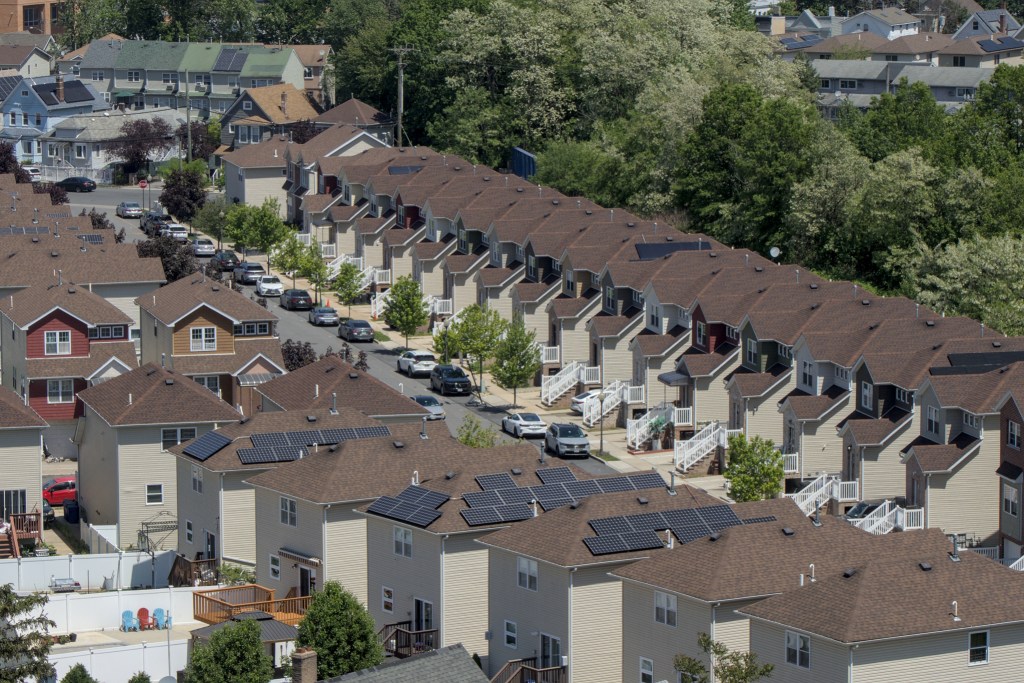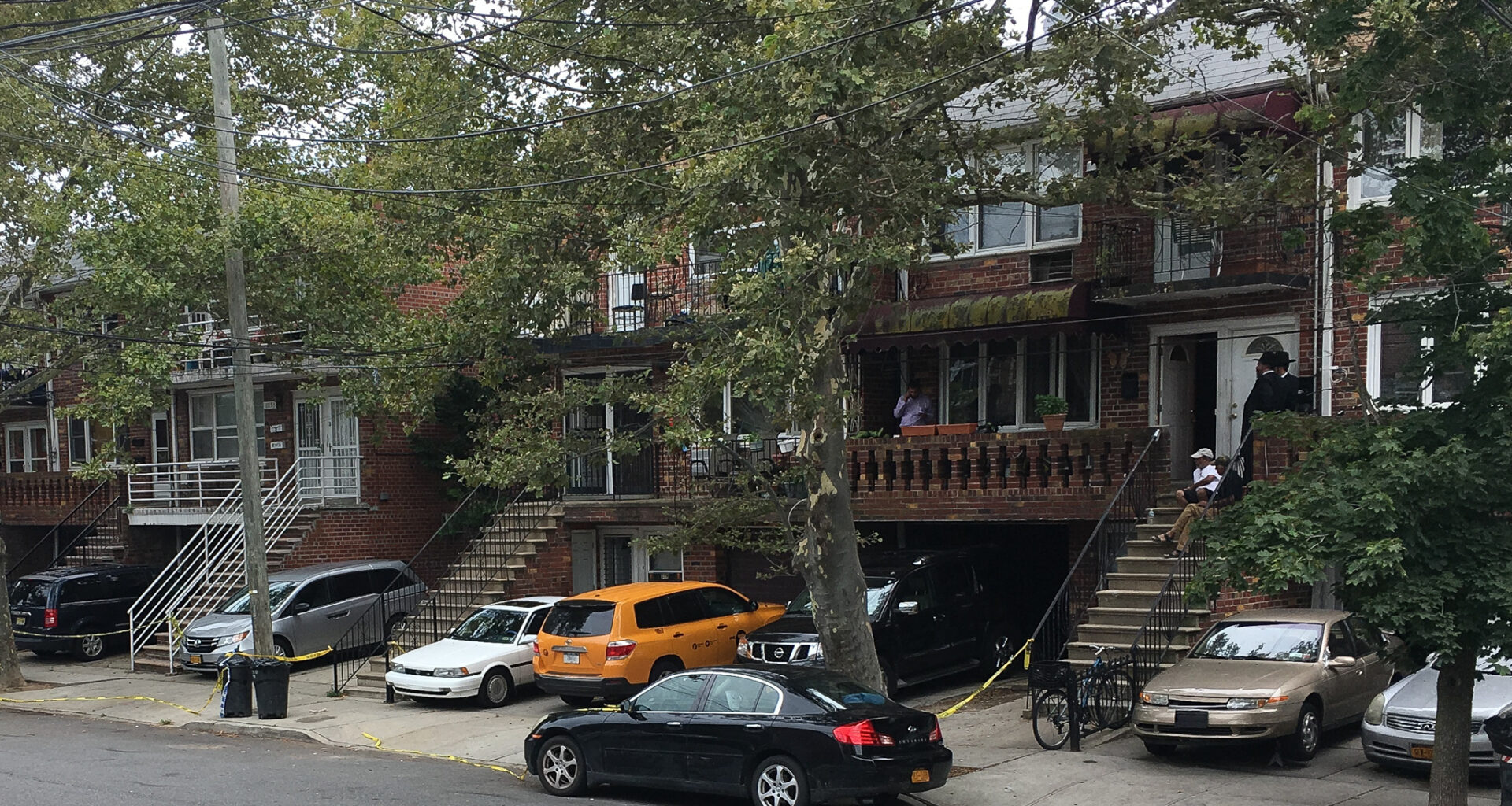A major effort to speed construction of badly needed housing with a referendum vote on changes to the City Charter appears to be gaining momentum as opposition by the City Council comes under increased scrutiny.
Updated data from the New York Housing Conference released Wednesday shows that some areas of the city are producing virtually no affordable housing, a situation one of the charter reforms aims to change.
A new poll released Wednesday by the pro-charter reform group YES on Affordable Housing shows that at least 70% of likely voters plan to support the three proposals.
The Council is spending upwards of $2 million in public dollars to fight the reforms, with less than a week to go before Election Day — action that government ethics experts say could violate a charter ban on electioneering.
The housing charter proposals — measures 2, 3 and 4 — are designed to speed the development of more affordable housing. Item 2 would remove the City Council from the review process for some subsidized affordable housing projects and for development in the dozen community districts that have produced the fewest affordable units, giving the City Planning Commission final say. Item 3 similarly fast-tracks modest zoning changes and approvals for infrastructure.
And item 4 would enable developers of other projects to appeal to a panel composed of the mayor, City Council speaker and borough president if the Council rejects their proposal.
The New York Housing Conference finds that 10 Council districts produced just seven units of affordable housing in total during the first six months of this year. Four produced none — including the districts represented by Councilmember Gale Brewer on the Upper West Side, Speaker Adrienne Adams in Queens, Councilmember Susan Zhuang in southern Brooklyn and a Council district — currently vacant — covering Greenwich Village and the Lower East Side.
Meanwhile, the 10 districts producing the most housing produced 4,540 new units in that time — more than 600 times the total for the 10 lowest districts.The largest number were built in District 47 represented by Justin Brannan, adding 706 apartments.
The new data is consistent with the group’s previous findings dating back to 2014 which show the least amount of affordable housing constructed in eastern and southern Queens, southern and eastern Brooklyn, and Staten Island.
 Single-family houses dot a Staten Island neighborhood, May 21, 2025. Credit: yuriyt/Shutterstock
Single-family houses dot a Staten Island neighborhood, May 21, 2025. Credit: yuriyt/Shutterstock
“The story is that the new data tells the same story as the long-term data,” said Rachel Fee, executive director of the conference.
She notes that changes enacted under Mayor Eric Adams’ City of Yes rezoning approved earlier this year will encourage some additional affordable housing but that the charter reforms will provide a big boost as well.
The charter reforms do not specify which districts would be included, leaving that for a new study. While the New York Housing Conference study uses Council districts — rather than community districts, which have different boundaries — it does indicate which areas of the city are likely to be targets for the reform.
The Council, joined by some labor unions, has mobilized mailings and other advocacy against the ballot measures, protesting the proposed rollbacks of its authority.
The taxpayer-funded campaign is blitzing voters with mailers and digital ads opposing what they call Adams “misleading” ballot proposals on housing, claiming they will “take away your power” and trigger more gentrification and less affordable housing.
“DON’T BE MISLED BY MAYOR ADAMS SO-CALLED HOUSING PROPOSALS,” one mailer proclaims.
Ads published on Instagram, Facebook, and Threads were no longer active as of Tuesday. According to Meta’s ad library, the Council had spent an estimated $13,000 on the campaign.
While never directly instructing voters to vote “no” on the measures, the anti-ballot measure message is clear enough to raise questions about whether the initiative violates city ethics rules prohibiting public officials from using public resources to “electioneer” in favor or against referendum questions.
Julia Agos, a spokesperson for Speaker Adams, claimed the Council had obtained advice from the city Conflicts of Interest Board that the mass mailing to voters opposing the ballot questions would not violate city ethics rules under the City Charter barring electioneering because “the public referendum on the proposals of the Charter Revision Commission is not a ‘political campaign.’”
But another section of the Charter states clearly that public servants may not use government funds “for a public message that contains an electioneering message,” which is defined as “a statement designed to…support or oppose a particular referendum question.”
The Council’s defense is “a kind of tunnel vision,” said Richard Briffault, former chair of COIB from 2014 through 2022 and now a professor at Columbia University. “They don’t look at the rest of the Charter” which “is very clear that it applies to ballot proposition campaigns. That’s where they make a mistake — they define it as a candidate or political party but the Charter also talks about ballot referendums.”
Charter reform supporter Fee became so angry at the mailers delivered to her home that she calculated that the $2 million — a figure that just covers the postage, as reported by City & State — would have produced 12 units of affordable housing or allowed 100 families to leave city shelters with a voucher to cover rent for a year.
If new polling is accurate, the Council’s effort is failing badly. The poll of 836 likely voters by Zenith Research released Wednesday found that 73% intend to support proposal 2, which fast tracks affordable housing, 70% will back proposal 3 which provides expedited reviews for modest proposals and 73% back proposal 4 which sets up an appeals board to overrule Council rejects of projects and rezonings.
“Voters are clearly ready to reject the politics of fear and minisinformation and issue a mandate to finally douse our house-on-fire housing crisis,” said Amit Singh Bagga, campaign director of YES on Affordable Housing.
Additional reporting by Marina Samuel.
Related

